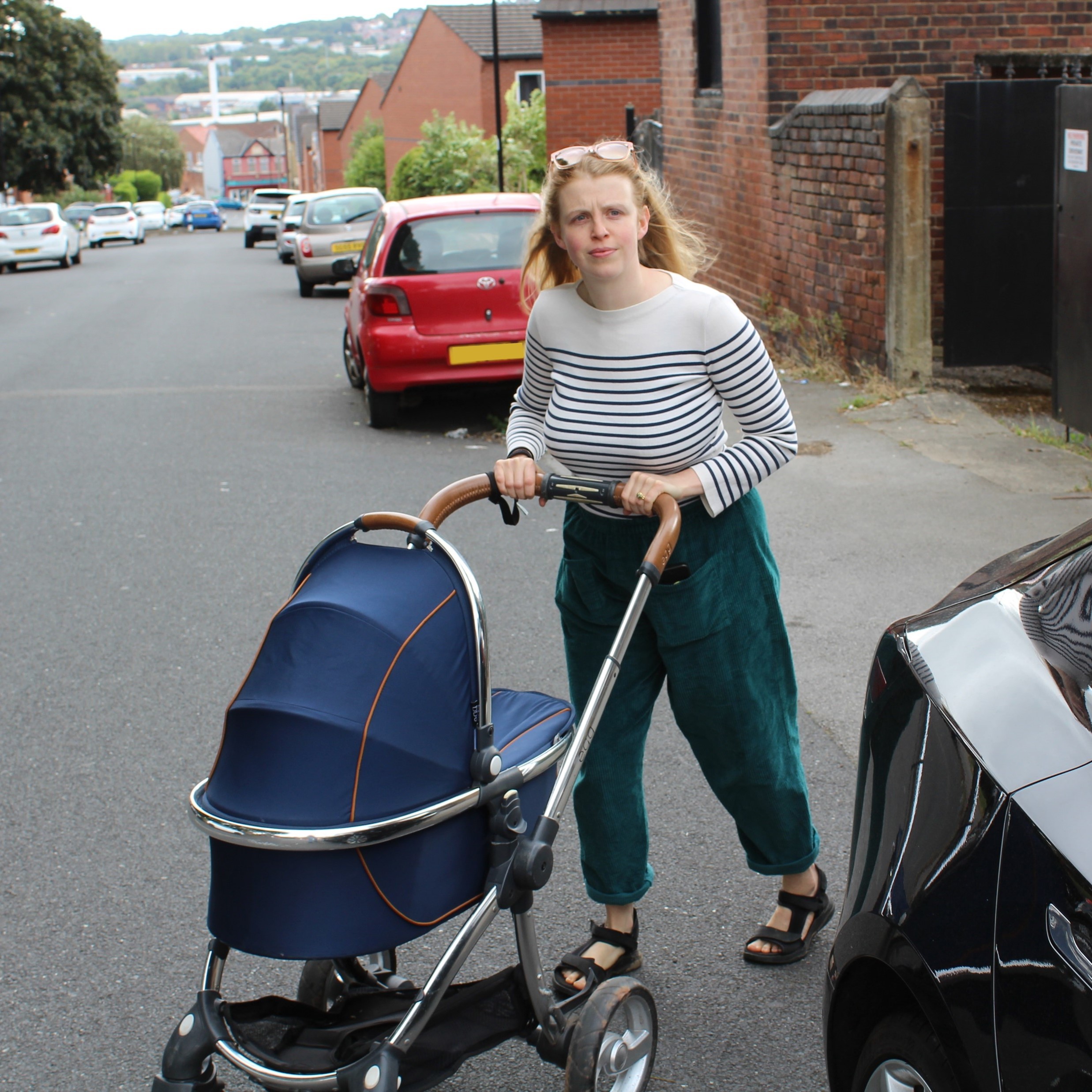End pavement parking in England
WHEN WILL WE SEE THE END OF PAVEMENT PARKING IN ENGLAND?
On 8 January 2026, Local Transport Minister Lilian Greenwood MP released a long-awaited response to the public consultation on pavement parking - after over five years of waiting. See our thoughts on the government's response in full here.
Local transport authorities will be given the power to prohibit pavement parking across their areas at the next legislative opportunity. Whilst in the meantime, secondary legislation will be introduced in 2026 to enable local authorities to enforce against unnecessary obstruction of the pavement. The department will issue statutory guidance to support local authorities in using this power.
These new powers allow for some quick progress after years of inaction and stop many people putting their lives in danger just to get around - but they do not go far enough to protect pedestrians.
Disabled people, parents with buggies and older residents shouldn’t have to depend on individual local authorities' appetite and capacity to enforce. This will result in inconsistency for communities and drivers, which increases risks for everyone using our streets.
We'll be working to influence the government’s guidance, so it strongly advises local leaders to act against pavement parking.
Sign up for our emails at the bottom of the page to keep updated with the progress of our campaign.

MAP PAVEMENT PARKING HOTSPOTS
We've shown how pavement parking is affecting the lives of people up and down the country.
People such as Aideen, a wheelchair user with cerebral palsy. Pavement parking continues to threaten her safety – and that of her children.
Aideen isn't alone. Over 1,600 of you added photos of vehicles parked on pavements to our map of pavement parking ‘hotspots’, which you can see below.
WHAT'S THE PROBLEM?
Vehicles parked on the footway can cause an obstruction and inhibit the independence of many vulnerable people, especially older or disabled people with visual or mobility impairments. YouGov polling commissioned by Living Streets found that 62% of adults over 65 in England were worried about obstructions on the pavement.
Every day, parents and children are putting themselves at risk because of pavement parking. Polling commissioned by Living Streets indicates that 87% of parents have had to walk into the road because of pavement parking and that 80% would be more likely to walk their child to school if there wasn’t pavement parking. Moreover, a Living Streets FOI request (2018) found that 93% of local authorities in England have received complaints from members of the public about pavement parking.
WHAT'S THE LATEST?
We welcomed the nationwide prohibition of pavement parking in Scotland announced in 2019. Following Covid-19, the implementation of the law was delayed and Living Streets Scotland worked to ensure the Scottish Government delivered the change in the correct way and only providing exemption when truly needed. In Wales, the Welsh Government proposed changes that will allow local authorities to enforce against pavement parking where it is causing an unnecessary obstruction to people on the pavement.
On 8 January 2026, Local Transport Minister Lilian Greenwood MP released a long-awaited response to the public consultation on pavement parking. Local transport authorities will be given the power to prohibit pavement parking across their areas at the next legislative opportunity. Whilst in the meantime, secondary legislation will be introduced in 2026 to enable local authorities to enforce against unnecessary obstruction of the pavement. The department will issue statutory guidance to support local authorities in using this power.
These new powers allow for some quick progress after years of inaction and stop many people putting their lives in danger just to get around.
It’s disappointing not to see a nationwide prohibition, instead handing the power to local leaders to ban pavement parking. This will result in inconsistency for communities and drivers, which increases risks for everyone using our streets. These new powers do not go far enough to protect pedestrians. Disabled people, parents with buggies and older residents shouldn’t have to depend on individual local authorities' appetite and capacity to enforce.
While national prohibition would offer a clear end to pavement parking, now we can only hope the government’s guidance strongly advises local leaders to act against pavement parking, and we will do our best to ensure this is the case.
THE CONSULTATION WAS WON THANKS IN NO SMALL PART TO THE THOUSANDS OF LIVING STREETS SUPPORTERS WHO SENT US THEIR THOUGHTS ON PAVEMENT PARKING IN SPRING 2019
The following June, our Policy and Research Manager, Dr Rachel Lee, went before the Transport Select Committee to give oral evidence on the impact on pedestrians of pavement parking.
In her evidence she included several of the thousands of personal testimonies we received from our supporters - the power of which was noted by members of the committee afterwards.
You can watch the session in full in our video here.
In Scotland?
We did it! Scotland has voted to introduce a nationwide prohibition of pavement parking.
In Wales?
Welsh Government is investigating ways to clamp down on pavement parking in Wales. And Living Streets is on the task force.













